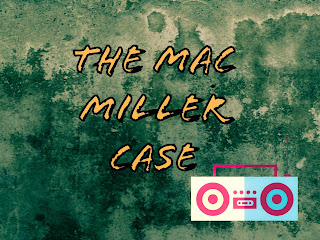Wu Tangology: How Criminal Justice Students Can Learn More About the Criminal Justice System
How does the Wu Tang Clan
correlate to studying criminal justice and criminology? The answer is easily conveyed through a
multi-faceted examination of lyrical content, expressions by the members of the
Wu Tang Clan, and its ability to deliver musical content that depicts the
living situations of urban culture, philosophical content, and the stressors
that African Americans endure on a daily basis.
More specifically, the members of the Wu Tang Clan all hail from the New
York City area and grew up dealing with harsh realities of “ghetto life,”
racism from White people and, in turn, were able to support themselves by
expressing their thoughts about the world as they dealt with it. With this being said, the members of the Wu Tang Clan also rap about stoic understandings of the world as well as have an overall
quality that presents positive messages into society. For example, each member has created music
that allows criminal justice students – as well as all people – to comprehend how
African Americans are treated in the United States regardless of their contribution
to the world and how creative outlets can be a positive channel to deal with frustrations. Which, in turn, permits their listeners to collect an appreciation for the differences in
human beings, culture, and respect for the aforementioned variations between
human beings. Learning in other words. Additionally, the Wu Tang
Clan serves as an illustration for criminal justice students to learn about the
issues that are presented in their classrooms via a direct and indirect source –
this is done by the members of the Wu Tang Clan (direct) and their musical pieces
(indirect). It does not get any realer
than this unless you actually go to African American communities and talk to the people who
live there, see the environmental conditions, and observe the treatment that occurs
by the hand of the local, state, and federal government bodies. Which is something that this author recommends that criminal justice students do without turning people and communities into science projects -- be real in other words and be yourself. The Wu-Tang Clan's life lessons will come to light if criminal justice students partake in the processes of communicating with their fellow citizens in their communities.
Furthermore, the Wu Tang Clan has
been delivering positive messages into our society for many years now, and
these messages contradict some of their lyrics at times. This is a good thing. For example, the Wu Tang Clan is known for
phrases that suggest being a positive role model for children, learning arts
and foreign cultures, peace and love, and integrity in one’s behavior. While also expressing frustrations and elements of "ghetto life." Criminal justice students – which may include
many future and present law enforcers – are able to learn how rappers, rap
music, and people who identify with the music are not only presenting bad influences or are as threatening as many individuals claim that they are or it (the music) is, and that rap music is
another form of art that brings people together and should not be demonized
more so than other obscene images in our society (other genres of music, movies, books, video games, magazines, etc.). This is also stated
because of the terrible practices by law enforcers in African American neighborhoods. Crime seems to be found in these areas more
so than other areas, and by listening to music by the Wu Tang Clan, as well as
learning about their positive messages, criminal justice students should be
able to take in the information that is presented by the Wu Tang Clan and, in turn,
deliver positive solutions to create a better society for everyone -- which is
what the field of criminal justice and criminology is all about.
In sum, the Wu Tang Clan
serves are great example for learning about African American culture, world
history, sociological and psychological premises for human behavior, problems in the legal
system, and how the arts are able to bring positive messages to a community while still reserving the right to express oneself when frustrations exist. Using other forms of education – such as
turning to the music and messages of the Wu Tang Clan – shall allow criminal
justice students to glean the realities of the world, create positive public
policies, and not be biased in their education and future professional
endeavors. Their messages and music also allow criminal justice students to eliminate their biases and misunderstandings about media influences and African American culture.
“Wu Tang is for the
children.”



Comments
Post a Comment